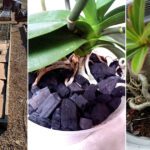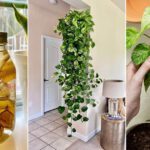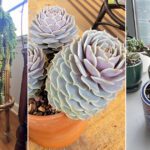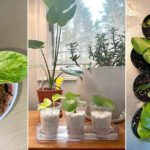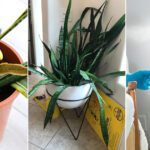Weird but Useful Things to Add to the Soil of These Plants for best growth and health without spending much.
Sometimes the best plant boosters aren’t fancy fertilizers or expensive products. In fact, some of the weirdest things from your kitchen or trash can do wonders for your garden soil! These odd but useful items help your plants grow better, stay healthy, and even produce more flowers or fruit. Here are some surprising things you can add to your soil—and which plants love them the most.
Weird but Useful Things to Add to the Soil of These Plants
1. Banana Peels – Great for Roses, Tomatoes, and Houseplants

Don’t toss those banana peels! They’re full of potassium, magnesium, and phosphorus—all great nutrients for flowering plants. Simply chop them into small pieces and bury them in the soil around your roses, tomato plants, or peace lilies. As they break down, they release nutrients that help plants bloom and grow stronger roots.
2. Eggshells – Best for Peppers, Tomatoes, and Indoor Plants

Crushed eggshells add calcium to the soil, which is particularly beneficial for tomatoes and peppers that are prone to blossom-end rot. Wash the shells, dry them, and crush them finely before mixing them into the soil or sprinkling them around the base of your plants. Indoor plants like snake plants and pothos also benefit from the extra calcium.
3. Used Coffee Grounds – Ideal for Azaleas, Hydrangeas, and Spider Plants

Used coffee grounds add nitrogen and improve soil texture. They’re slightly acidic, making them perfect for acid-loving plants like azaleas, hydrangeas, and even spider plants. Just make sure not to add too much at once—use a thin layer and mix it into the soil.
4. Hair (Yes, Human or Pet!) – Great for All Garden Plants

Hair might sound weird, but it’s full of nitrogen and breaks down slowly in the soil. Sprinkle small amounts of hair clippings around your plants or mix them into compost. It’s especially useful for outdoor plants like lettuce, spinach, and other leafy greens.
5. Cinnamon – Helpful for Seedlings and Houseplants

Sprinkling cinnamon on soil may sound like a cooking trick, but it actually helps prevent fungal infections in seedlings and indoor plants. It has antifungal properties and can protect young plants from “damping off” disease. Just dust a little on the surface of the soil.
6. Aquarium Water – Perfect for Indoor Plants and Herbs

If you have a freshwater fish tank, don’t pour out the old water! Aquarium water is rich in fish waste, which acts like a mild, organic fertilizer. Use it to water houseplants, herbs, and even vegetables growing in pots. Avoid using water from saltwater tanks.
7. Crushed Charcoal – Best for Succulents and Orchids

Crushed charcoal helps purify soil and improve drainage. It also prevents rot in plants that hate soggy roots, like succulents and orchids. You can mix a small amount into your potting mix to keep the soil fresh and airy.
8. Old Tea Leaves – Great for Ferns, Begonias, and Pothos

Tea leaves are rich in tannins and other plant-friendly nutrients. Sprinkle used tea leaves on the soil or mix them into compost. Acid-loving plants like ferns, begonias, and pothos enjoy the mild acidity and nutrients.
9. Molasses – Ideal for Outdoor Plants and Vegetable Gardens

A tablespoon of blackstrap molasses mixed with water feeds soil microbes and helps plants take in nutrients better. Use it on your vegetable garden or flowering shrubs once every few weeks. It’s a sweet treat for the soil, not just your pancakes!
10. Cardboard and Paper – Good for Raised Beds and Compost

Shredded cardboard and newspaper may not look like plant food, but they help improve soil structure and retain moisture. Lay them at the bottom of raised beds or mix them into compost piles. As they break down, they feed helpful organisms in the soil.


